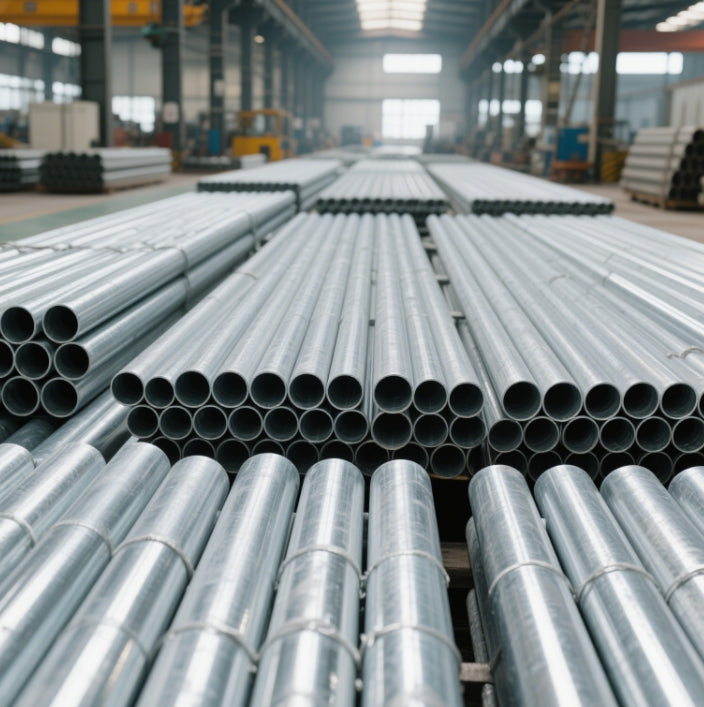StockSteel
High-Pressure galvanized pipe fittings | Industrial Fluid Transport
High-Pressure galvanized pipe fittings | Industrial Fluid Transport
Couldn't load pickup availability
High-Pressure Galvanized Pipe Fittings | Industrial Fluid Transport
Product Overview
High-pressure galvanized pipe fittings are engineered for demanding industrial fluid transport systems, offering superior corrosion resistance and structural integrity. These fittings are essential for applications in oil & gas, chemical processing, water supply, and power generation. The hot-dip galvanizing process ensures a robust zinc coating, extending service life even in harsh environments.
Technical Specifications
| Parameter | Details |
|---|---|
| Material | Carbon steel (ASTM A53) with hot-dip galvanized coating (min. 210g/m² zinc) |
| Size Range | ½" to 24" (DN15–DN600) |
| Pressure Rating | 600–9000 PSI (ASME B16.11, ISO 4144) |
| Hardness | 150–200 HV (Vickers) |
| Surface Treatment | Hot-dip galvanized, passivated for enhanced corrosion resistance |
| Process | Cold forging, threading, precision machining, and ISO-certified QC |
Key Features
1. Tensile & Bend Strength
Tensile strength (400–550 MPa) ensures resistance to internal pressure and mechanical stress, critical for high-pressure systems. Bend strength (300–450 MPa) prevents deformation under lateral loads, maintaining pipeline alignment.
2. Identification & Marking
Fittings are laser-etched with ASTM standards (e.g., A53, A123), size, pressure rating, and batch number for traceability.
3. Weight Calculation
Weight (kg/m) = (OD² – (OD – 2×WT)²) × 0.02466
Example: For a 2" (60.3mm OD) pipe with 3.5mm wall thickness:
(60.3² – 53.3²) × 0.02466 ≈ 4.89 kg/m.
4. Why Stainless Steel Can Rust
While stainless steel resists corrosion, chloride exposure (e.g., seawater), mechanical damage, or high-temperature oxidation can compromise its passive layer, leading to localized rust.
Maintenance & Application Tips
Galvanized Steel Pipe Repair
For minor corrosion, clean the affected area with a wire brush, apply zinc-rich paint or cold galvanizing spray, and inspect annually. Severe damage may require section replacement using rubber mechanical couplings or welding.
Galvanized Steel Water Pipes
Ideal for potable water systems due to zinc’s antimicrobial properties. Ensure joints are sealed with PTFE tape to prevent leaks.
How Do You Cut Galvanized Pipe
Use a reciprocating saw with a metal-cutting blade or angle grinder. Always deburr edges and apply anti-corrosion primer after cutting.
Why Choose Our Stainless Steel Solutions?
-
Unmatched Durability
Our stainless steel fittings (grades 304/316L) resist pitting, crevice corrosion, and extreme temperatures (-200°C to 800°C), outperforming standard galvanized options. -
Eco-Friendly & Recyclable
Stainless steel is 100% recyclable, reducing environmental footprint and lifecycle costs. -
Aesthetic Versatility
A polished or brushed finish complements industrial and architectural designs, maintaining appearance over decades. -
Certified Quality
Compliance with ISO 9001, ASTM A312, and PED 2014/68/EU ensures reliability in critical applications. -
Customization
Tailor-made solutions for non-standard sizes, pressure ratings, and alloy compositions (e.g., duplex, superaustenitic).

